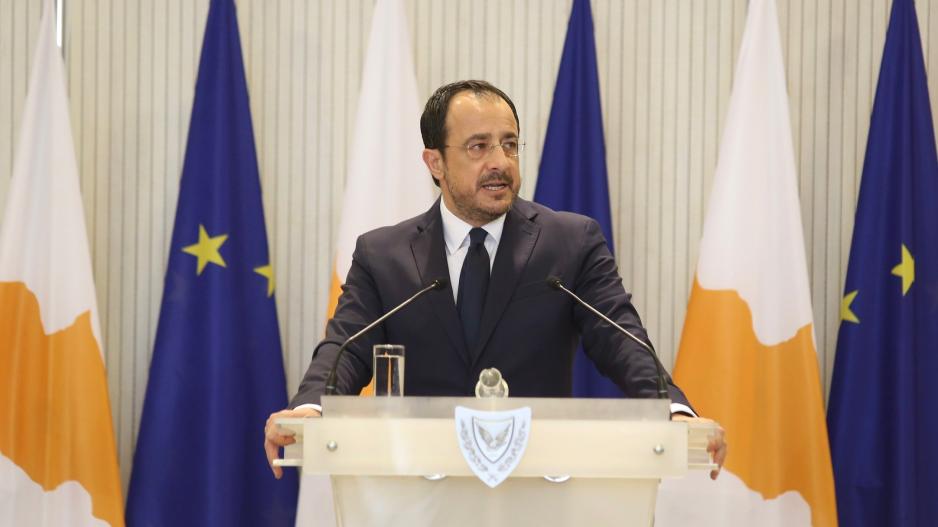€60 Million Economic Relief Measures Announced by Nikos Christodoulides
A Blend of New and Extended Initiatives to Combat Cost of Living Crisis
The President of the Republic, Nikos Christodoulides, has announced seven measures, exceeding €60 million in value, to combat the rising cost of living. These initiatives include an extension of existing measures, along with four new measures. The package includes the extension of electricity subsidies until the end of April, an additional month of reduced consumption tax on fuels, one-time support for households receiving benefits from the Ministry of Welfare, the abolition of the special annual corporate fee of €350 implemented in 2011, and new relief measures for refugees
"In October 2023, we announced a €196 million relief package. The new targeted package I announced today, exceeding €60 million, is within our fiscal capabilities and in line with the steady growth trajectory of the Cypriot economy," said President Christodoulides in a recorded statement.
The new package extends the tiered electricity subsidy measure from March 1 until April 30, 2024, for domestic, commercial, and industrial consumers, with 100% coverage of the increased electricity prices for vulnerable consumers. The measure also extends the reduced fuel consumption tax until March 31, 2024.
Households receiving relevant benefits from the Ministry of Social Welfare, based on income criteria, will also receive support. Specifically, single-parent families will receive a one-time support for each child, with a maximum amount of €250. Families with more than four dependent children will receive an additional amount per child.
Additionally, as the President mentioned, households receiving the Minimum Guaranteed Income and not included in the aforementioned categories will receive a corresponding one-time amount. Over 27,000 families are expected to benefit from these measures.
To support large families, and considering the high interest in the purchase of electric vehicles through the recently announced electrification grant program, the relevant budget is increased by €2 million.
For the refugee community, the range of beneficiaries has been expanded, and the amounts relating to the Plans of the Central Agency for Equal Distribution of Burdens have been increased. Specifically, the subsidy for housing loans has been raised from €130,000 to €200,000, and the subsidy period from 20 to 30 years, abolishing income criteria. The subsidy for housing repairs is also increased from €50,000 to €100,000 without income criteria.
The subsidy for students is also increased, including maintenance expenses beyond tuition fees. The amount of any scholarship will no longer be deducted from the student loan amount, as was previously the case. New financing schemes for home renovations, household appliance purchases, and energy upgrades in existing homes are introduced, without income criteria. The beneficiaries of the Entrepreneurship Financing Scheme for young entrepreneurs are also expanded.
Regarding properties in the occupied areas used for loans that were subsequently repaid, President Christodoulides announced that they could now be used again in related applications to the Central Agency for Equal Distribution of Burdens. The loan and interest subsidy schemes granted by the Agency will no longer be considered collectively.
Furthermore, applications for Housing Loans will no longer consider whether applicants own another property, unless they have been previously approved by the Agency for that specific property.
The abolition of the annual corporate fee of €350 aims to further alleviate and support businesses.
President Christodoulides also recalled that the Housing Loan Interest Subsidy Scheme for purchasing and building a first home, announced in October 2023, has received the relevant approval from the European Commission and is now in effect.
"We continue our significant effort with specific goals, a plan, and determination. Above all, with responsibility, persistence, and a people-centered approach for the Cyprus we want," concluded the President of the Republic.
Earlier, the Council of Ministers decided to extend maternity leave from 18 to 22 weeks, fulfilling a government policy position agreed upon with social partners.
Following the Cabinet meeting on Wednesday morning, the Minister of Labor and Social Insurance, Yiannis Panagiotou, stated that about 5,000 new working mothers would benefit annually from the increase. He added that an actuarial study confirmed the financial cost is within the capabilities of the Social Insurance Fund. The Minister noted that the bill would be promptly submitted to the House of Representatives.
According to Mr. Panagiotou, the bill provides for an increase in maternity leave duration to 22 weeks for the first child born or through surrogacy and 20 weeks for the first child adopted. Additionally, the extra maternity leave for hospitalization of the newborn after birth is increased from 6 to 8 weeks.
"Approximately 5,000 new working mothers are expected to benefit annually," he added, "and all new mothers who have recently given birth and will not have completed the existing 18 weeks of maternity leave at the time of the bill's approval will be entitled to the additional 4 weeks. The extension of maternity leave will significantly contribute to the balance between professional and family life, allowing new working mothers to spend more time with their children during the crucial early months," he added.
Regarding mothers currently on maternity leave who will not complete it before the bill's enactment, Mr. Panagiotou stated that their leave would be extended by four more weeks.
"The sooner the bill is approved by the House, the better for mothers who have already given birth and are on leave," he concluded.






